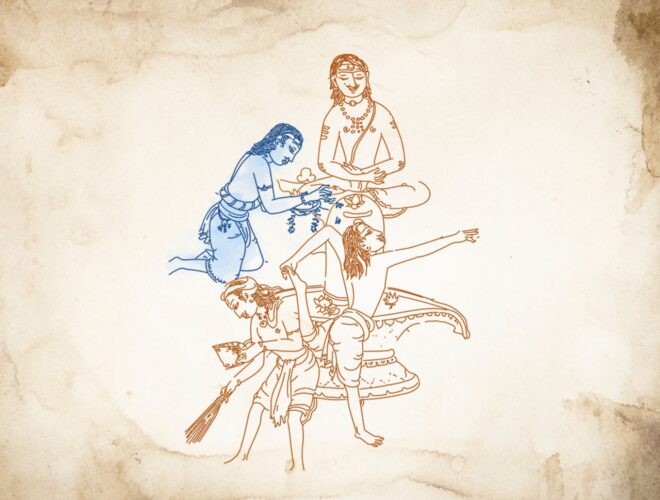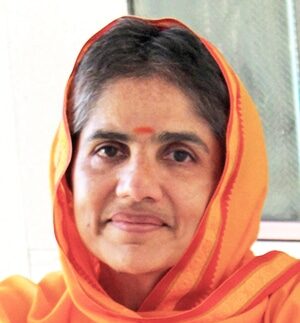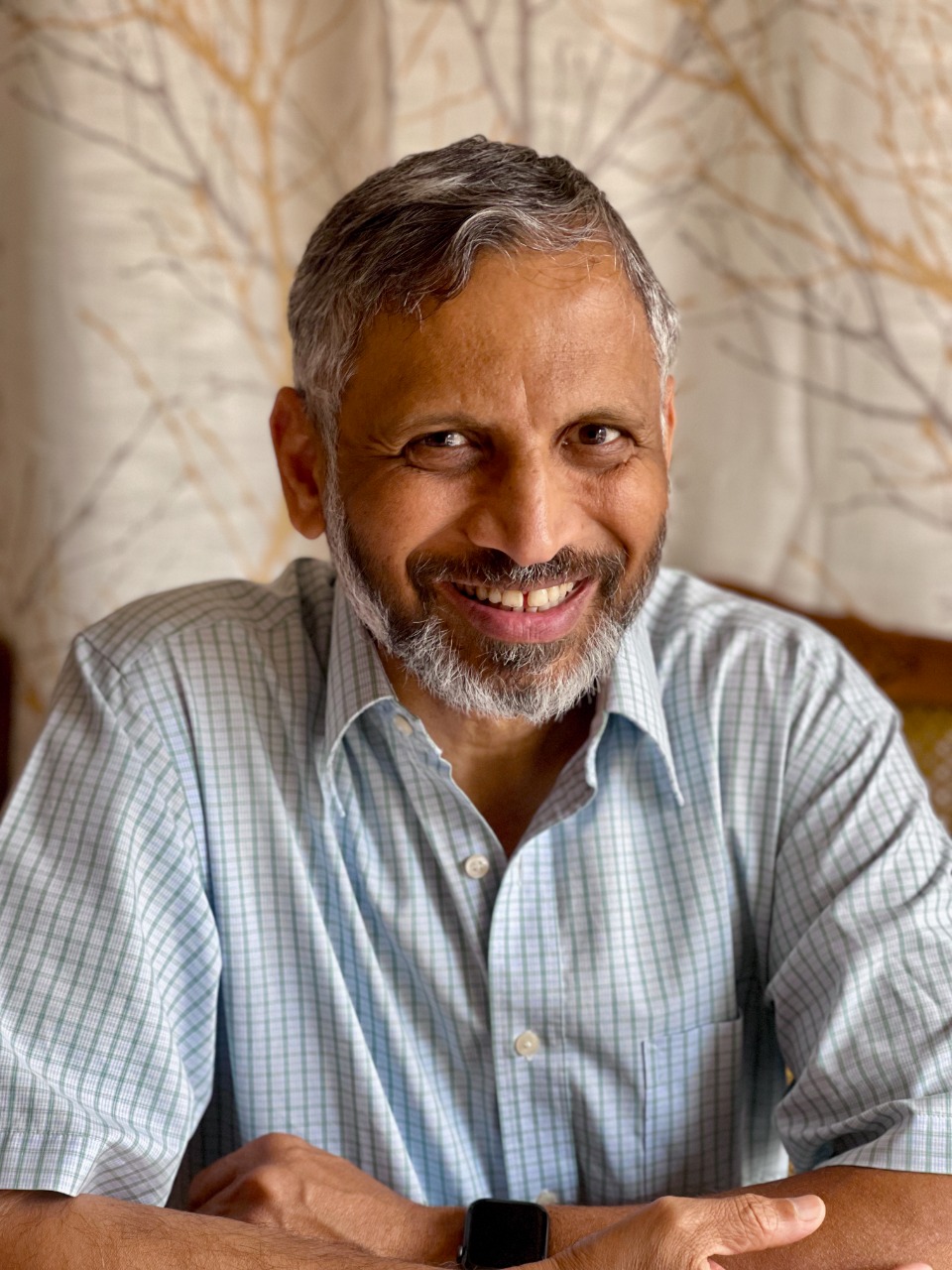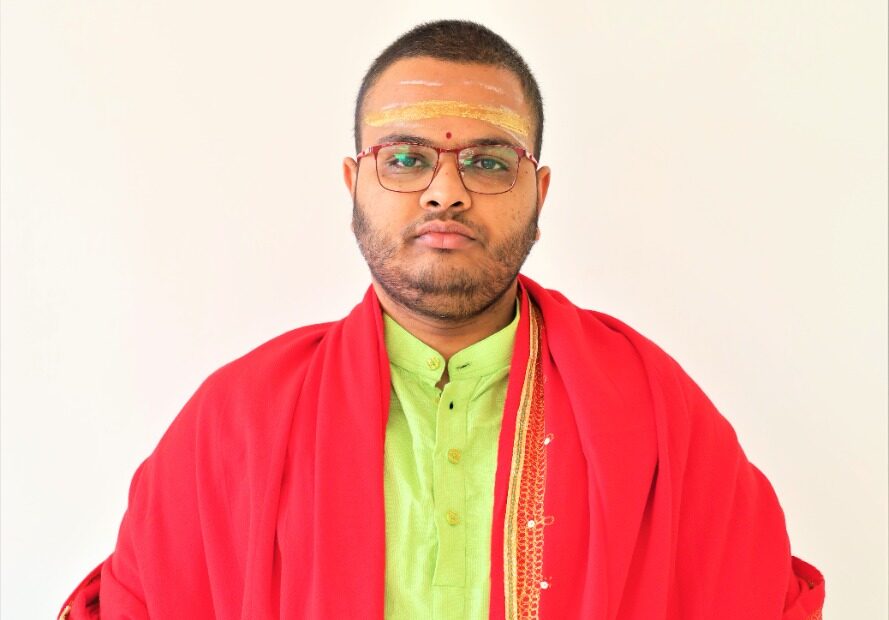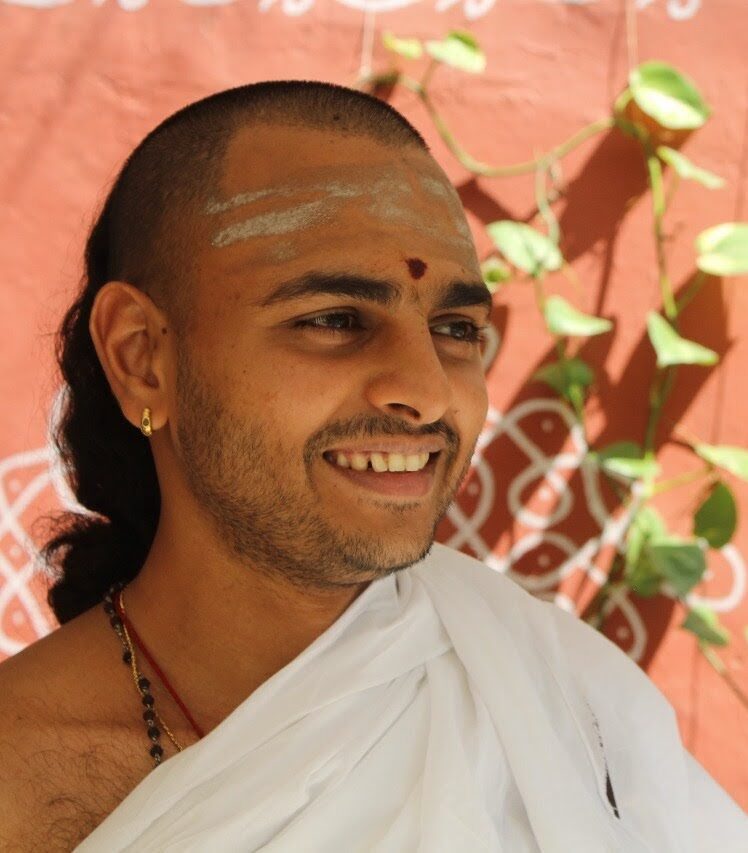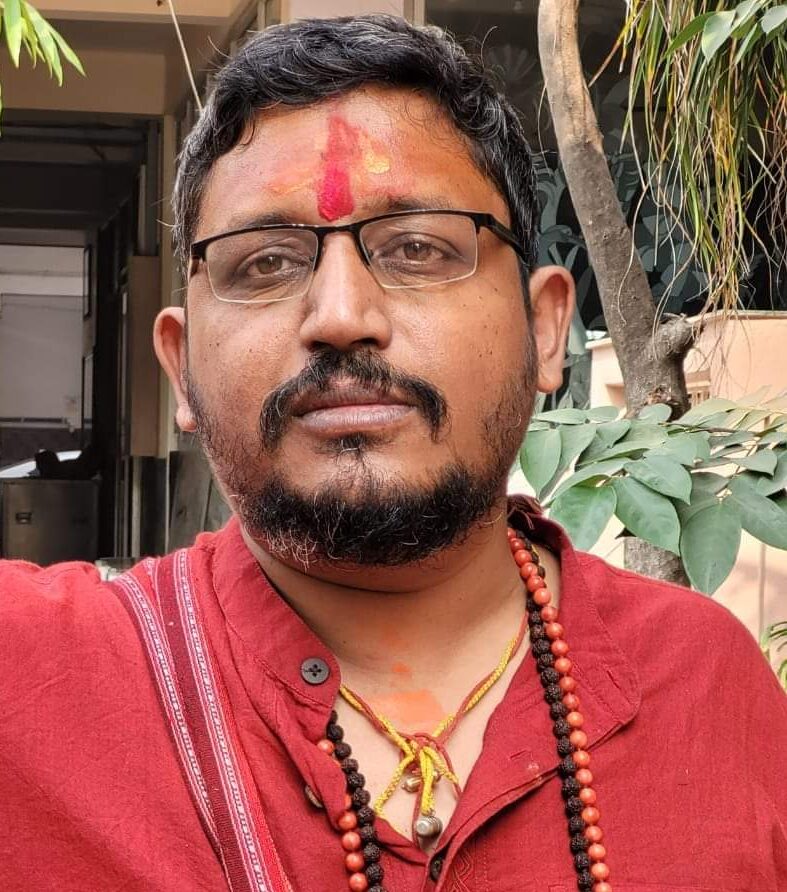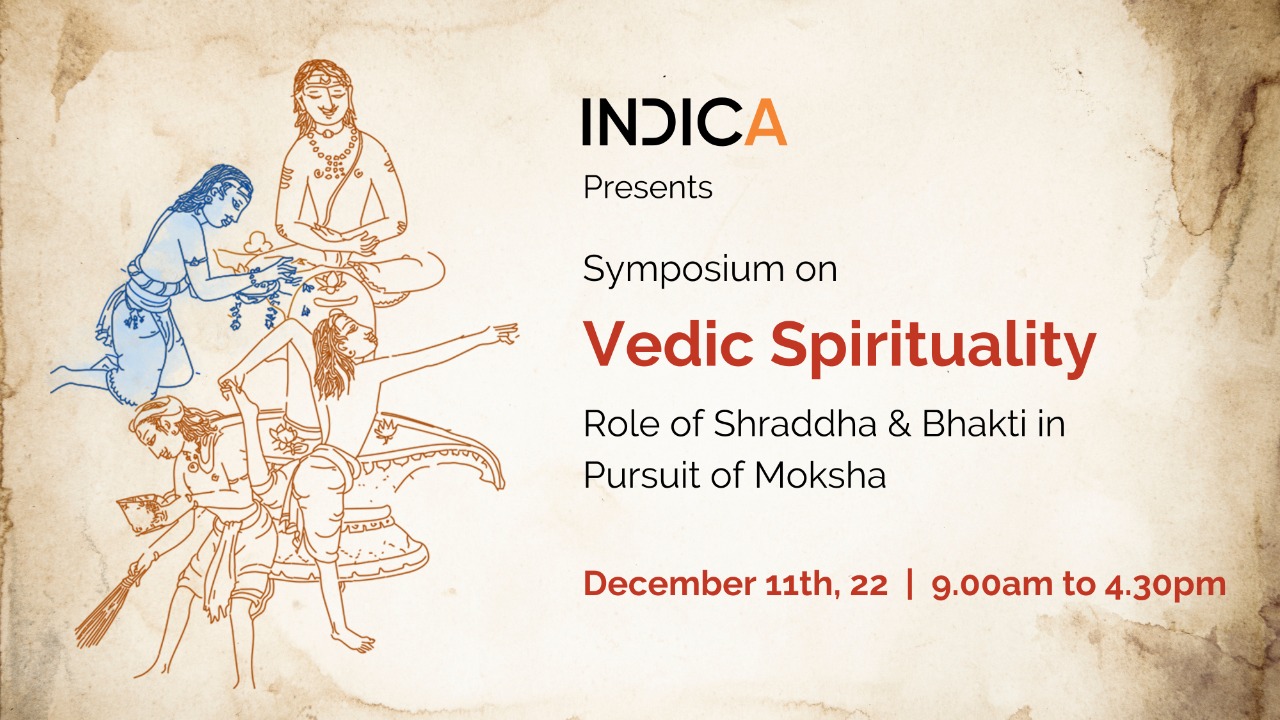
Spirituality is a widely popular idea but without a single widely agreed-upon definition. According to one survey by McCarroll, there were as many as twenty-seven explicit definitions with little agreement between each other (McCarroll, O’Connor & Meakes 2005).
According to Kees Waaijman (2000), the traditional meaning of spirituality is a process of re-formation or transformation which “aims to recover the original shape of man, the image of God. To accomplish this, the re-formation is oriented at a mold, which represents the original shape: in Judaism the Torah, in Christianity there is Christ, for Buddhism, Buddha, and in Islam, Muhammad.” Thus, in Western context, spirituality has largely been informed by the theological context of Judaism and Christianity.
During the 19th and 20th century, modern notions of spirituality were developed by mixing Christian ideas with Western esoteric traditions and elements from Indian spiritual traditions. After the second world world, spirituality became more and more divorced from traditional forms of religion such as Christianity (Waaijman 2000) and instead the emphasis shifted to subjective experience (Saucier & Skrzypinska 2006). Today, spirituality is sometimes associated with philosophical, social, or political movements such as liberalism, feminist theology, and green politics (Snyder & Lopez 2007). In general, spirituality has been understood as an individual’s search for deeper and sacred meaning in life, a seeking for personal growth, religious experience, belief in a supernatural realm or afterlife, or to make sense of one’s own inner dimension.
Etymologically ‘Spirituality’ means ‘concerning the Spirit’ and indicates something which is beyond the material. Bill Cosgrave (2017) examines the notion of ‘spirit’ and ‘spiritual being’ in his article ‘Understanding Spirituality Today’. Citing the views of Karl Rahner, he writes “being spirit or having a spiritual dimension means that we human beings have the ability to move out beyond ourselves or to transcend ourselves in and through pursuing knowledge, acting in freedom and loving others…. We may say, then, that because we are spiritual beings, there is a dynamism within us that enables us to reach out in love and commit ourselves to good causes, to seek to grow in knowledge and wisdom, and to deepen our freedom to give ourselves more fully and wholeheartedly to our chosen goals.” A similar view is expressed by John Macquarrie (1972) that Spirit may be described as a capacity for going out of oneself and beyond oneself, or, again, as the capacity for transcending oneself.
Cosgrave (2017) adds that” a person’s spirituality is simply how a person, as a spiritual being, as spirit in the world, believes, lives and acts in his/her personal life, in his/her relationships, in his/ her communities, in God’s creation and, of course, for the religious person, in his/her relationship with God.”
He lists six aspects of Spirituality:
- Everyone has a spirituality.
- Spirituality concerns the deeper dimensions of life.
- Spirituality gives meaning to our lives.
- Spirituality has a necessary moral dimension.
- Spirituality is concerned with experience.
- Spirituality is a communal reality.
In the Indian context, the term Spirituality is used as the English counterpart of Sanskrit term ‘Adhyatma’ which means ‘pertaining to Self (Atma)’ and Vedic Spirituality refers to the pursuit of Atma (Self) as understood in Vedic tradition. This pursuit of Atma is considered as the ultimate life-pursuit as it grants freedom from the cycle of life and death (hence called Moksha) through the attainment of knowledge of true nature of Self (Atma-Jnana) which is of the nature of Sat-Chit-Ananda (existence-consioucness-bliss).
This pursuit Atma-Jnana, also called as Brahma-Vidya, primarily enunciated in the Upanishadic portion of the Vedas, but also elaborated in Itihasa-Puranas, Brahmasutras, and other later works of different Acharyas, constitutes the heart of Vedic Spirituality. The goal, the process, the different paths, the competancy requirements, the means of developing those competancies- the entire road-map of this pursuit of Vedic Spirituality has been laid down in the primary texts and elaborated by different Acharyas.
One of the distinguishing features of this Vedic Spirituality is the stress given to ‘Devotion’. Devotion is generally defined as love, loyalty, or enthusiasm for a person or activity. In the context of Vedic Spirituality, Devotion is an umbrella term which can refer to a number of things. Three important strands include:
- Shraddha towards Guru & Shastras.
- Bhakti & Dhyana towards Bhagavan
- Anusandhana & Nidhidhyasana towards Brahman/Atman
This symposium intends to highlight the contours of Vedic Spirituality by focusing on the role played by Shraddha, Bhakti and Anusandhana in the pursuit of Moksha.
Works Cited:
- Cosgrave, Bill. “Understanding Spirituality Today.” The Furrow 68, no. 11 (2017): 593–602. http://www.jstor.org/stable/44739117.
- Macquarrie, John. (1972) Paths in Spirituality. SCM Press, London.
- McCarroll, Pam; O’Connor, Thomas St. James; Meakes, Elizabeth (2005), Assessing plurality in Spirituality Definitions. In: Meier et al, “Spirituality and Health: Multidisciplinary Explorations”, Wilfrid Laurier Univ. Press, pp. 44–59
- Saucier, Gerard; Skrzypinska, Katarzyna (1 October 2006). “Spiritual But Not Religious? Evidence for Two Independent Dispositions” (PDF). Journal of Personality. 74 (5): 1257–92.
- Snyder, C.R.; Lopez, Shane J. (2007), Positive Psychology, Sage Publications, Inc.
- Waaijman, Kees (2000), Spiritualiteit. Vormen, grondslagen, methoden, Kampen/Gent: Kok/Carmelitana.
***SCHEDULE***
| S.No |
Name of the Speaker |
Topic |
Time |
| 1. |
Nithin Sridhar
Chief Curator, Indica Moksha |
Introduction |
9.00 AM to 9.05 AM |
| 2. |
Hari Kiran Vadlamani
Founder, INDICA |
Opening Remarks |
9.05 AM to 9.15 AM |
| 3. |
Swamini Svatmavidyananda Acharya of Arsha Vijnana Gurukulam, Eugene, OR |
Inaugural Address: Cultivating Shraddha and Bhakti for Spiritual
Growth and Emotional Maturity’ |
9.15 AM to 10.00 AM |
| 4. |
Dushyanth Sridhar
Vedic Speaker, Writer & Researcher |
Nava-Vidha Bhakti: The Vedic Notion of
Devotion as Enunciated in Srimad Bhagavatam |
10.00 AM to 10.30 AM |
| 5. |
Dr. Arjun S
Assistant Professor, Department of
Liberal Arts, Humanities & Social
Sciences, Manipal Academy of Higher
Education, Bengaluru |
The Concept of Bhakti in Madhva Paramparā |
10.30 AM to 11.00 AM |
| 6. |
Dr. Prasad Kaipa
Co-founder, CCSIT &
Chairman, Samskrita Bharathi, USA |
Spirituality in Contemporary World: Bhakti & Shraddha in the Lives of Millennials |
11.00 AM to 11.30 AM |
| 7. |
Vidwan Jammalamadaka
Srinivas
Assistant Professor, School of Shastric
Learning, Kavikulaguru Kalidas Sanskrit
University, Ramtek |
Devotion Through Action: Role of Bhakti- Samyukta-Karma in the Pursuit of Moksha |
11.30 AM to 12.00 PM |
| 8. |
Dr. Tulasi Kumar Joshi Assistant Professor, Department of Sanskrit, Vasanta College for Women, Rajghat, Varanasi |
Adhyatma: A Perspective from Adi
Shankaracharya’s Commentaries |
12.00 PM to 12.30 PM |
LUNCH BREAK
| 9. |
Vidwan Jammalamadaka
Suryanarayana
Assistant Professor, MIT IIKS. Pune |
Function of Shraddha & Bhakti in Moksha
Marga: A Perspective from Yogasutras |
1.30 PM to 2.00 PM |
| 10. |
Dr. Gauri Mahulikar
Academic Director,
Chinmaya International Foundation |
Seven Golden Rules of Vedic Spirituality |
2.00 PM to 2.30 PM |
| 11. |
Rajarshi Nandy
Upasaka, Author & Speaker |
Role of Bhakti in Tantropasana |
2.30 PM to 3.00 PM |
| 12. |
Aditi Banerjee
Author, Speaker & Attorney |
More Than Faith: Shraddha as Suspension of Disbelief |
3.00 PM to 3.30 PM |
| 13. |
Raghu Ananthanarayanan Founder, Ritambhara Ashram & Co-Founder, CCSIT |
The Practice of Shraddha and Bhakti in the Yogasutras |
3.30 PM to 4.00 PM |
| 14. |
Dr. Nagaraj Paturi
Senior Director &
Chief Curator, INDICA |
Summary & Closing Remarks |
4.00 PM to 4.20 PM |
| 15. |
Nithin Sridhar
Chief Curator, Indica Moksha |
Conclusion & Vote of Thanks |
4.20 PM to 4.30 PM |
Speakers
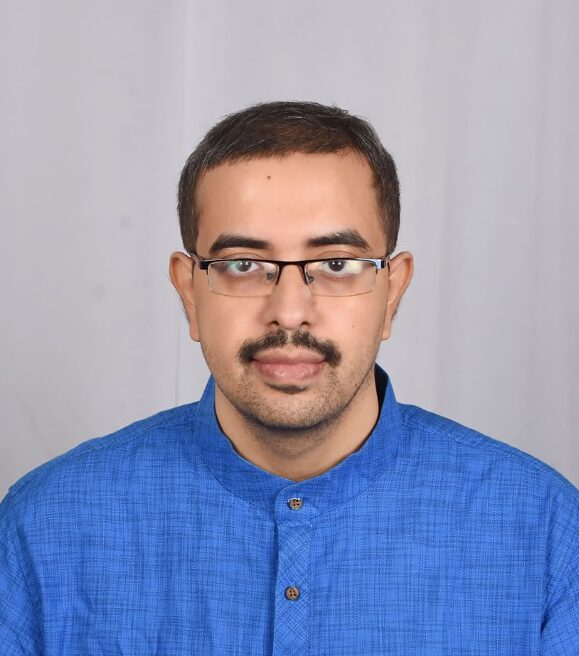
Nithin Sridhar
Chief Curator, Indica Moksha
Nithin Sridhar has a degree in Civil Engineering, and having worked in the construction field, he passionately writes about various issues from development, politics, and social issues, to religion, spirituality, and ecology. He is currently Editor of IndiaFacts- a portal on Indian history and culture; He is Chief Curator of Advaita Academy dedicated to the dissemination of Advaita Vedanta. He is a Consulting Editor to Indic Today Magazine. He is based in Mysuru, Karnataka. His first book "Musings On Hinduism" provided an overview of various aspects of Hindu philosophy and society. His latest book 'Samanya Dharma' enunciates upon general tenets of ethics as available in Hindu texts. However, his most widely read book is "Menstruation Across Cultures: A Historical Perspective" that examines menstruation notions and practices prevalent in different cultures & religions from across the world. His upcoming book is an English commentary on Ishavasya Upanishad. He tweets at @nkgrock.
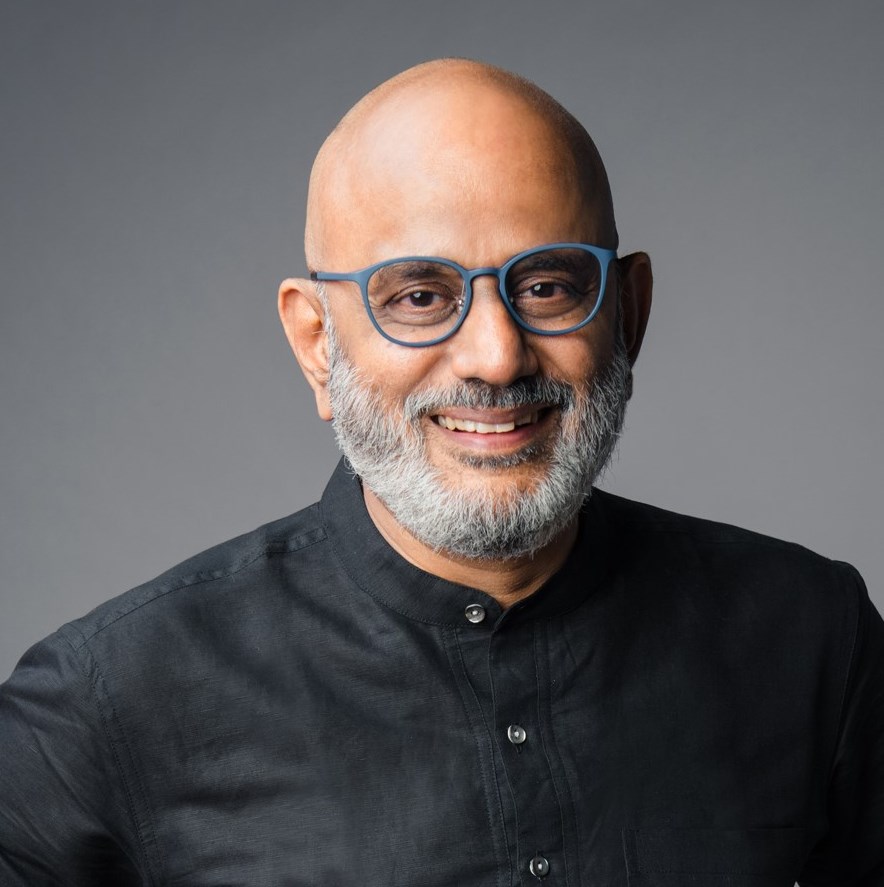
Hari Kiran Vadlamani
Founder, INDICA
Hari Kiran Vadlamani ( Hari) is a Chartered Accountant by qualification and a serial entrepreneur, having been involved in four ventures in Technology and Energy sectors. He is deeply passionate about Art, Philosophy and Indian Cultural Heritage and is a Dharmic- Indic Liberal. In 2015 he transformed himself into a Social Entrepreneur pursuing the preservation, protection and promotion of Indian Heritage. He founded INDICA ( www.indica.in) and NICE (www.niceorg.in) , both not for profits in the area of Cultural Education and Entrepreneurship. Hari brings in an entrepreneurial mindset to his work of delivering indigenous knowledge as a service, product or an experience by incubating a portfolio of ideas, rapid prototyping, absorbing failures, applying a three horizon framework, thinking of scale etc. Having the mindset of a venture investor, Hari is focussed on backing passionate individuals. He encourages, enables and empowers them to discover, nurture and express their creative potential. He believes in transforming the narrator and not the narrative. A strong advocate of pluralism, Hari envisions a vibrant ecosystem of diverse set of players and ideas and seeks to build the enabling infrastructure. Hari believes that Indian thought and the indigenous way of life from various global traditions have solutions to some of the key challenges we face today, especially sustainability, happiness, well-being and peace. He is working on developing the requisite institutional mechanisms that can transform a billion global consumers into conscious thinkers, entrepreneurs, leaders and most importantly seekers. He has developed a unique six dimensional integral strategy for pursuing this vision.
Swamini Svatmavidyananda
Acharya of Arsha Vijnana Gurukulam, Eugene, OR
Swamini Svatmavidyananda is a long-term disciple of Pujya Sri Swami Dayananda Saraswatiji. She is a prolific speaker and writer on Vedanta, and tours all over the world offering webinars and discourses on self-knowledge gained from the study of the Upanishads and the Gita. Swaminiji is the acharya of Arsha Vijnana Gurukulam, based in Eugene, Oregon, USA. She is the author of "Freedom from Distrust and Despair," and "Overcoming Self-Sabotage in Self-Knowledge."
Swaminiji is a member of the Global Peace Initiative of Women, an interfaith organization dedicated to world peace and harmony. She is also the President and convener of the Arsha Shakti, a brand new global foundation for Women's Empowerment and Liberation that is in the process of being incorporated in the USA and India.
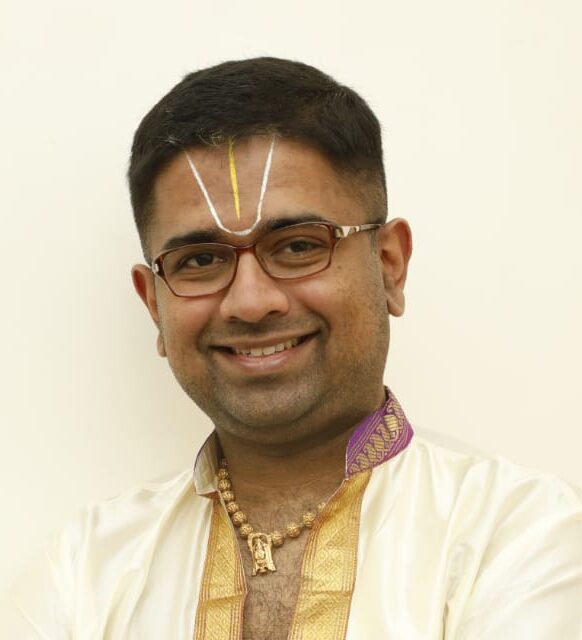
Dushyanth Sridhar
Vedic Speaker, Writer & Researcher
Dushyanth Sridhar is one of the most sought-after public speakers in Sanātana Dharma who renders discourses in English & Tamil. He delivers discourses on Rāmāyana, Mahābhārata, Bhāgavata, Vishnu Purāna, Bhagavad Gitā, Vishnu Sahasranāma and Divya Prabanda in the upanyāsam, pravachanam or kālakshepam style.
He has collaborated with eminent musicians to deliver discourses in the harikathā style and with renowned dancers in the kathā-nritya style. He has conceptualized, scripted and directed large dance productions such as Rāmāyana Sudhā, Srinivāsam Prapadye, Aranganin Pādaiyil, Rāmānuja Darshanam, Bhāvayāmi Raghurāmam and Vedānta Desika Charitram with leading choreographers. He delivers lectures to corporates and educational institutions besides speaking at renowned conclaves. He has a wide spectrum of audience following on YouTube with 25 million views across 1000 videos.
He has rendered over 3000 discourses in 125 cities across 23 countries (Indiā, Sri Lankā, Bhutān, Nepāl, Chinā, Myānmar, Cambodiā, Indonesiā, Malaysiā, Singapore, Bahrain, UAE, Kenyā, Germany, Luxembourg, Denmārk, Switzerlānd, Belgium, UK, New Zealānd, Australiā, Canadā, USA). He was conferred many prestigious awards such as Harikathā Bhārati Title by Bhārat Kalāchār, Young Achievers Award from Rotary International, Sarva Kalā Chudāmani Title by Sri Hayagreeva Vidyā Peetam, Bhāgawata Bhāswan Sri Anjan Nambudiri Memorial Award by Mahālingapuram Sri Ayyappan Bhakta Sabhā & Sollin Selvan Title by The South Indian Bhajana Samāj and much more.
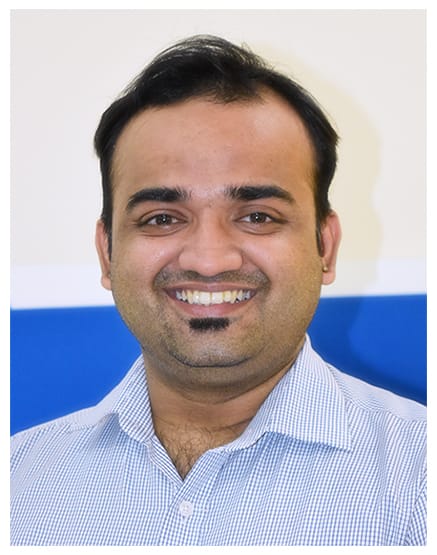
Dr. Arjun S
Assistant Professor, Department of Liberal Arts, Humanities & Social Sciences, Manipal Academy of Higher Education, Bengaluru
Dr. Arjuna S R is from Srirangapatna, Karnataka. He studied in Poornaprajna Vidyapeetha - a gurukula in Bengaluru, for 12 years and has received two MA degrees in Sanskrit and Navya-Nyaaya, respectively. He is a gold medalist in MA Navya-Nyaaya.
He completed his PhD under the guidance of renowned computational linguist Prof Amba Kulkarni from Hyderabad Central University. He worked as an Assistant Professor at the Department of Philosophy, MAHE, Manipal and recently shifted to the Department of Liberal Arts, Humanities and Social Sciences (DLHS), MAHE, Bengaluru campus. He has academic interests in Sanskrit Computational Linguistics (SCL), Indian Philosophy, Indian Knowledge Systems, Sanskrit language & Literature, Itihaasa and translation studies.
He has many publications to his credit and actively working on three international projects on different fields like Mahabharata, Indian Knowledge Systems and Language Technology. He is always proud to say that he is one of the disciples of Padmavibhushana Paramapujya Shri Vishveshatirtha Svamiji of Pejavara Matha, Udupi.
Dr. Prasad Kaipa
Co-founder, CCSIT & Chairman, Samskrita Bharathi, USA
Dr. Prasad Kaipa is co-founder of Center for Consciousness Studies and Inner Transformation. He is also a trustee for North South Foundation and Yoga Bharathi, and Chairman of Samskrita Bharathi USA. Prasad got a ph.d. in physics from IIT Madras, was an assistant professor in University of Utah before moving to Apple. At Apple, he was a research fellow designing tools for augmenting human intelligence integrating Indic wisdom with brain research. He spent the past 30+ years teaching in various business schools and coaching senior executives and applying vedantic frameworks for human development. His 2013 book From Smart to Wise is based on the Guna framework from the Bhagavad Gita and Prasad lives in the Silicon Valley for the past 35 years.
Vidwan Jammalamadaka Srinivas
Assistant Professor, School of Shastric Learning, Kavikulaguru Kalidas Sanskrit University, Ramtek
Srinivas Jammalamadaka studied Nyaya/Tarka Shastra under Sri. Ambadipudi Radhe Shyama Shastri, Advaita Vedanta under Sri. R. Mani David's Sastrigal, and Vyakarana under Sri. Ganti Dattatreya Murthy. He has completed the Tenali exams in Tarka Shastra and appeared for the Tenali exams in Advaita Vedanta. He has completed MPhil & PhD in Nyaya shastra.
He is presently the Assistant Professor at the School of Shastric Learning, Kavikulaguru Kalidas Sanskrit University, Ramtek. He has been conferred awards such as - Tarka-Ratnam & Vidwan Mani by Sri Kanchi Shankaracharya, Shastrakalanidhi by Madhya Pradesh State Governor.
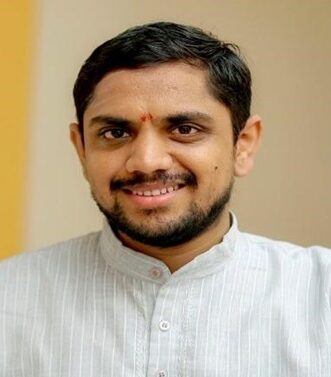
Dr. Tulasi Kumar Joshi
Assistant Professor, Department of Sanskrit, Vasanta College for Women, Rajghat, Varanasi
Dr. Tulasi Kumar Joshi is an Assistant Professor at the Department of Sanskrit in the Vasanta College for Women, Rajghat, Varanasi. He has had the rare opportunity to study Vyakarana, Nyaya and Vedanta from imminent Acharyas such as Shri. Purushottam Tripathi, Prof. Rajaram Shukla, Shri Mani Dravid Shastrigal & Shrihari Dhaygude. He has completed Ph.D from the Banaras Hindu University, Varanasi, guided by Prof. Dhananjay Kumar Pandey, MA (Sanskrit), from the Banaras Hindu University, Varanasi & Ācārya in Śāṅkara Advaita in the Sampurnananda Sanskrit University.
Following the completion of his Ph.D., Dr. Tulasi Kumar Joshi joined Rashtriya Sanskrit Sansthan as Guest Faculty in Advaita Vedanta at their Guruvayoor Campus. He has delivered lectures on Vyākaraṇa, Nyāya and Advaita Vedānta at several Vakyārtha Sabhas. He has been invited to several Workshops, Seminars and Conferences, and has published research papers in national and international journals. He has keen interest in Yogic Philosophy too. He is also an expert in the epistemological and metaphysical aspects of Indian philosophy. He devotes significant effort in conducting and participating in traditional discourses on the Śāstras. He has also prepared students for such discourses. He has been conferred with the prestigious award of Suvarṇa-angulīyakam from the Mahasannidhānam at Sringeri Sharada Peetham.
Vidwan Jammalamadaka Suryanarayana
Assistant Professor, MIT IIKS. Pune
Jammalamadaka Suryanarayana is a researcher and educator who is passionate about spreading the knowledge of the Shastras. He is Assistant Professor at MIT - IKS, Pune and Visiting Professor at Kavikulaguru Kalidasa Sanskrit University, Ramtek. He has done extensive research on areas such as logic, law, jurisprudence, and Sanskrit. He has published over 15 articles and written several academic papers. He has been conferred with awards such as ‘Tarka Ratnam’ and ‘Vidwan Mani’ by H.H. Sri Jayendra Saraswathi Swamiji, ‘Veda Vidya Varishtha’ by VSR Foundation, Hyderabad and the ‘Shastra Kalanidhi’ by Governor, Government of Madhya pradesh.
He intends to nurture future masters by training people to take the Shastric knowledge to the next level. This he believes is possible only when we start looking at Shastras to find solutions to present problems in the world.
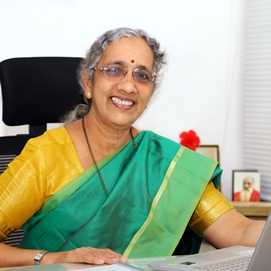
Dr. Gauri Mahulikar
Academic Director, Chinmaya International Foundation
Prof. Gauri Mahulikar is the Academic Director at Chinmaya International Foundation. She is the Former Dean of Faculty and former Vice Chancellor of Chinmaya University, Kerala, India.
A researcher in the Vedic literature, student of Vedanta and a passionate lover of Sanskrit literature, Prof. Mahulikar has participated in many National and International Conferences. She has published 7 books and more than 80 articles in various journals and books. She retired as Head of Sanskrit Department and Gurudev Tagore chair for Comparative Literature of Mumbai University in 2015 and joined the Chinmaya University as Vice Chancellor, and after having served as the Dean of Faculty she is currently the Academic Director at Chinmaya International Foundation.
She is associated with different institutes and NGO-s in the capacity of advisor and management positions. Born in Karnataka, India, she can speak in 5 Indian languages in addition to English.
Rajarshi Nandy
Upasaka, Author & Speaker
Rajarshi Nandy is an upasaka, author and speaker on Hindu spiritual matter particularly related to tantra sadhana and its relevance in modern times. He also conducts Adhyatmik retreats to introduce and mentor people on the basics of devata sadhana.
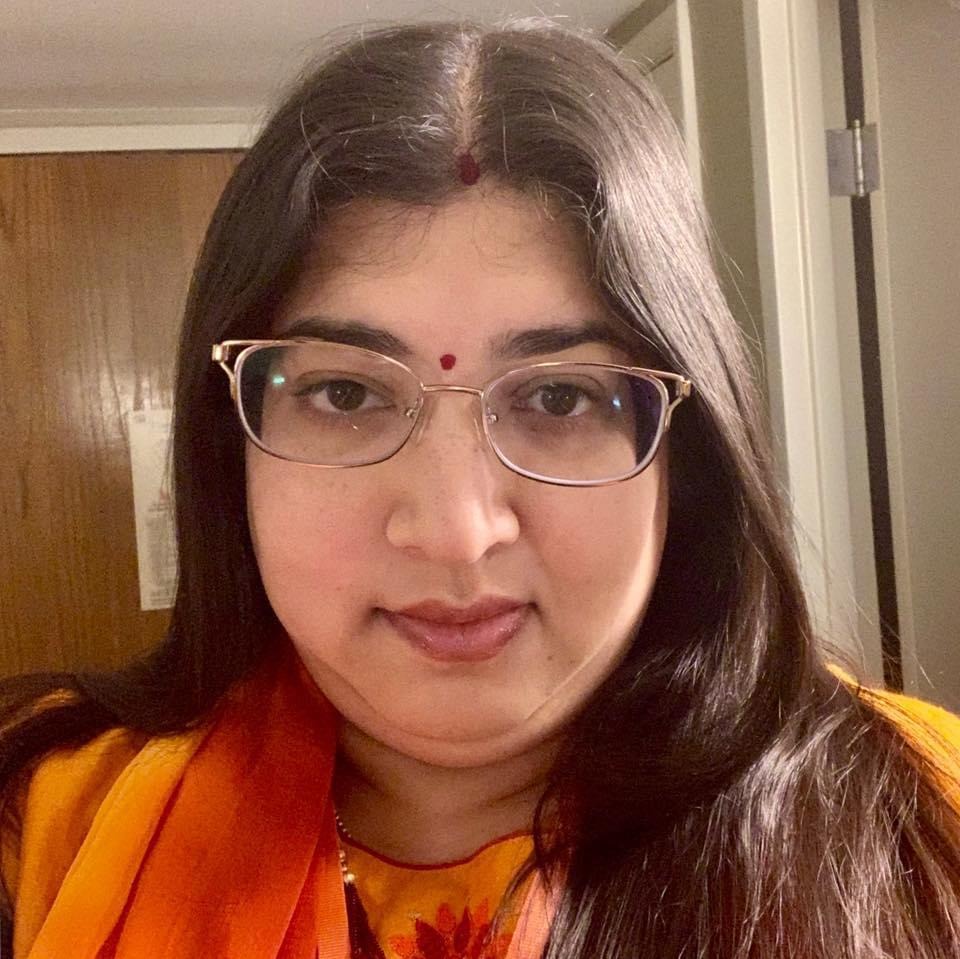
Aditi Banerjee
Author, Speaker & Attorney
Aditi Banerjee’s first novel, The Curse of Gandhari, a successful bestseller, was published by Bloomsbury India in September 2019. Her second novel, The Vow of Parvati, was also published by Bloomsbury India in April 2022. She has also published Hindu Love Stories: Dharmically Ever After in February 2022.
She is a practicing attorney at a Fortune 500 financial services company in the US and has also completed an Executive MBA at Columbia University. She earned a Juris Doctor from Yale Law School and received a B.A. in International Relations, magna cum laude, from Tufts University.
She is a prolific writer and speaker about Hinduism and the Hindu-American experience. She is a member of the Indic Academy and Indic Book Club, which sponsored a successful six-city book launch tour for The Curse of Gandhari in September 2019 across India.
She co-edited the book, Invading the Sacred: An Analysis of Hinduism Studies in America in collaboration with Rajiv Malhotra, and has authored several essays in publications such as The Columbia Documentary History of Religion in America since 1945 and Buddhists, Hindus, and Sikhs in America: A Short History (Religion in American Life) (Oxford University Press). Her articles have also been published in Outlook India and many other publications.
In her free time, she enjoys wandering the Himalayas, cooking with the latest kitchen gadgets, hunting for that perfect cup of coffee, and reading about history and world literature.
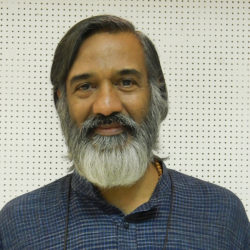
Raghu Ananthanarayanan
Founder, Ritambhara Ashram & Co-Founder, CCSIT
Raghu Ananthanarayanan is a behavioral scientist, yoga teacher and an author. He has dedicated his life to the study and application of Yoga and Indic traditions to guide the inner transformation of individuals and shape leadership and culture building of organizations.
The central quest in Raghu’s work has been the classic Indic enquiry: “How to continually look within, transform, be the best and inspire?” This seeking led to a discipleship with Yogacharya Krisnamacharya, dialoguing with J Krishnamurti and collaborating with Prof. Pulin K Garg. Raghu understood the bridge between the body and the mind, individual and the group, the traditional and the modern, which has shaped his self-enquiry throughout his life. Using Patanjali’s Yoga Sutra as the guiding light he developed an experiential self-learning process through reflective conversations, meditative practices and dialogues in groups. Over the past four decades, he incorporated ancient texts & traditional theater enabling others to look within. He combined this process work with knowledge of management systems to develop unique methodologies like “The Learning Theatre” and “Totally Aligned Organization” as well as the “Tensegrity Mandala” model to guide corporations and cultural organizations. His collaborative Yoga work includes therapy for special children, performance enhancement of sports-persons, healing injured dancers among others.
Raghu holds a Bachelors and a Masters degree in Engineering from IIT, Madras. His books include Learning Through Yoga, The Totally Aligned Organization, Leadership Dharma- Arjuna the Timeless Metaphor, Antaranga Yoga - The Foundation of Indian Psychology, The Five Seats of Power, and he co-authored Organizational Development and Alignment: The Tensegrity Mandala. He co-founded the Sumedhas Academy of Human Context and Barefoot Academy of Governance with TISS. He is one of the Directors of the Centre for Consciousness and Inner Transformation and the Director of Flame Tao Knoware Pvt Ltd and serves on the board of many organizations. He is actively engaged with building Ritambhara Ashram, a collective for inner transformation, as it’s Chief Mentor. He lives in Nilgiris, South India.
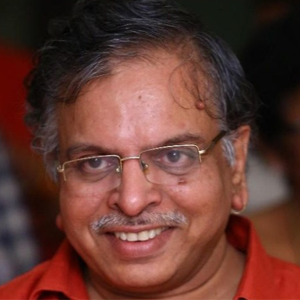
Dr. Nagaraj Paturi
Senior Director & Chief Curator, INDICA
Trained in Sanskrit and Advaita Vedanta by his hyper-polyglot, polymath and spiritually accomplished sakala-shaastra-paarangata father, late Sri Paturi Sitaramanjaneyulu garu, Dr Nagaraj Paturi is seriously committed to the transmission of Vedic sciences to the present generation. In his PhD thesis (1998, University of Hyderabad), he developed an Indic Model of Myth Criticism of Literature and in his MPhil (1987, University of Hyderabad), he foregrounded Vakyapadiya as the theoretical foundation of the Ashtadhyayi. In addition to over 50 publications and about 60 conference/seminar/workshop papers, Dr Paturi has designed several courses pertaining to the contemporary applications of Vedic Sciences and has been successfully teaching them and getting them taught. Formerly Senior Professor of Cultural Studies FLAME School of Communication (& FLAME School of Liberal Education) and a Visiting Professor, University of Chicago (USA), Dr Paturi is currently Senior Director and Chief Curator at INDICA, a Distinguished Professor, Curriculum Designer, Executive Committee Member, Board of Studies, MIT School of Vedic Sciences (Pune, Maharashtra), Member, Board of Studies at Kavikulaguru Kalidasa Sanskrit University (Ramtek, Maharashtra) and Rashtram School of Public Leadership (Sonipat, Haryana). He is also the Editor-in-Chief of International Journals of Studies in Public Leadership and is a member of the Advisory Council of Veda Vijnana Shodha Samsthanam (Bengaluru, Karnataka). He has provided consultancy to numerous culture research, theatre, and dance innovation projects. He has authored scores of creative writing works for Classical Dance, Modern Theater, and magazines and has delivered several series of talks and other programs on Radio and Television channels.

